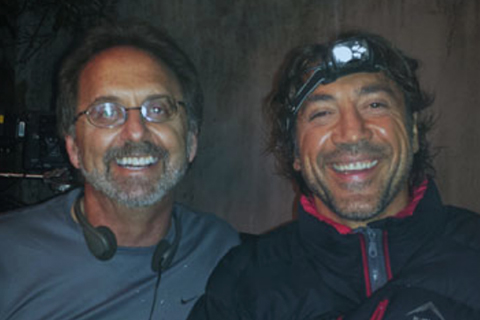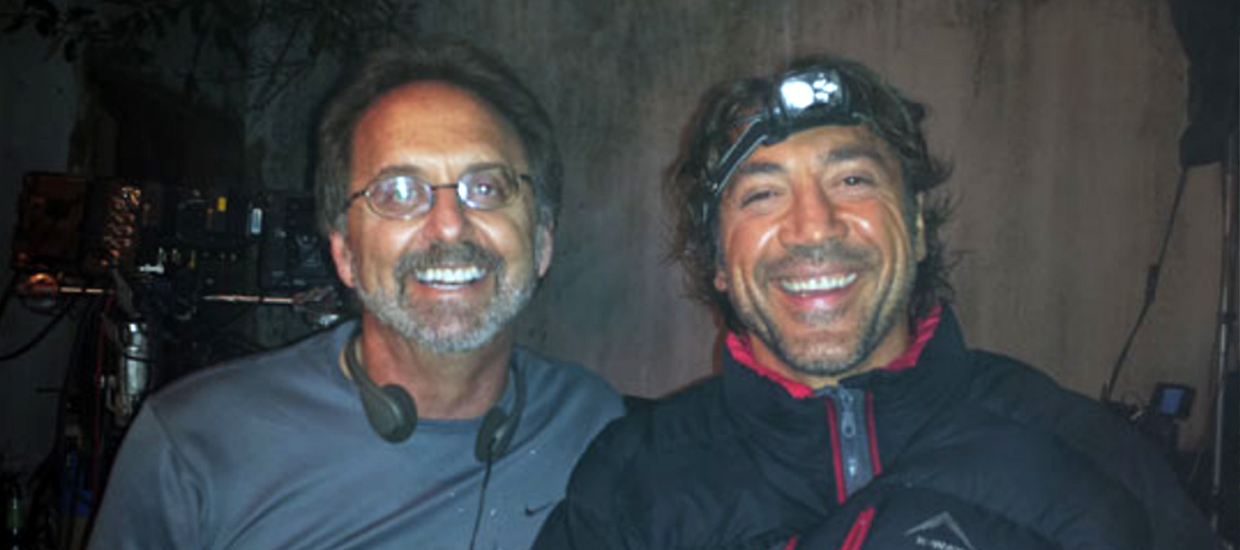For a brief moment in Sean Penn’s new film, The Last Face, Enrique Ginzburg, M.D. '85, is doing what the Miller School of Medicine trauma surgeon knows all too well: triaging bloodied and moaning patients in a makeshift hospital in one of the world’s most impoverished and unstable countries.
But this improvised hospital is not in Haiti, where Ginzburg, now the trauma medical director at Jackson South Medical Center, first met the Academy Award-winning actor after the cataclysmic 2010 earthquake that killed tens of thousands and maimed many more. It is in the war-torn African nation of Liberia, where, like Haiti, good medical care for most people is unavailable even in the best of times, and where, like Haiti, people count themselves lucky to have foreign doctors on the ground during their bleakest hours.
The drama, starring fellow Academy Award winners Charlize Theron and Javier Bardem, has drawn both raves and rants, some of the latter for glorifying white rescuers at the expense of oppressed locals. But Ginzburg says The Last Face shines an unsparing light on the harshest of realities.
“Along with criticism of the graphic nature of the film, there has been political discussion on the lack of African native doctors,” said Ginzburg, who served as medical advisor for the movie filmed over two years in Cape Town, South Africa. “But that’s the exact point so sorely misunderstood by the critics. The fact is that, in Africa and other developing countries, there is a severe lack of native trauma surgeons, so people have to rely on the ‘white doctor’ to come in during disasters.”
And, Ginzburg noted, that’s exactly what UM’s Barth A. Green, M.D., the co-founder of Project Medishare, successfully changed in Haiti and what the Ryder Trauma System and the UM Trauma Division are changing globally. “In Brazil, in Cuba, in St. Croix, in Saudi Arabia, in Colombia, in Argentina, in Thailand, in Israel, to name a few, our doctors have been training local doctors in trauma care so these countries have the know-how to take care of their own,” he said.
And it’s why Penn, who has spent years in post-earthquake Haiti organizing humanitarian aid, enlisted Ginzburg for The Last Face, which at its core is a love story between Theron’s character, the director of an international aid organization, and Bardem’s character, a relief-aid doctor. The movie also stars Jean Reno, Adele Exarchopoulos, and Jared Harris.
For his fifth directorial feature film, Penn wanted authenticity in the medical scenes, and the real-life horrors of disaster relief are indelibly etched in Ginzburg’s mind. A member of the four-man trauma team that Green, then chair of the Department of Neurosurgery, led into Haiti the day after the January 12, 2010 earthquake, Ginzburg quickly learned the essentials of improvisation and doing the best you can with what little you have.
Under Green’s tutelage, he was instrumental in establishing and operating the 400-bed tent hospital that UM opened at the Port-au-Prince airport just nine days after the earthquake. The best-stocked, best-staffed, and best-managed hospital in Haiti at the time, it was where, in eight weeks, volunteers from the Miller School, Jackson Memorial Hospital, and every state in the nation treated more than 20,000 earthquake survivors and performed more than 1,500 surgeries.
Initially, though, Ginzburg and the rest of Green’s team worked around the clock in a sweltering hanger at the airport where, reminiscent of the Civil War, hundreds of people with severed limbs, open fractures, soft-tissue wounds, head trauma, and unknown internal injuries lay on rows of cots screaming and moaning in agony. Ginzburg would perform his first amputation without general anesthesia there.
“I’ve never seen so much suffering in one place,” he said later about the moment he entered that hangar. “The immensity was overwhelming.”
“It was like stepping into a horror movie,” Green, now executive dean of health and community service, later recalled.
Fortunately for Ginzburg, stepping onto the set of The Last Face, which was released this month and is available on video, was a lot more fun.
“It was great,” he says. “A thrilling, life-enhancing experience. And I know I’m biased, but I loved the movie.”
Story by med.miami.edu





